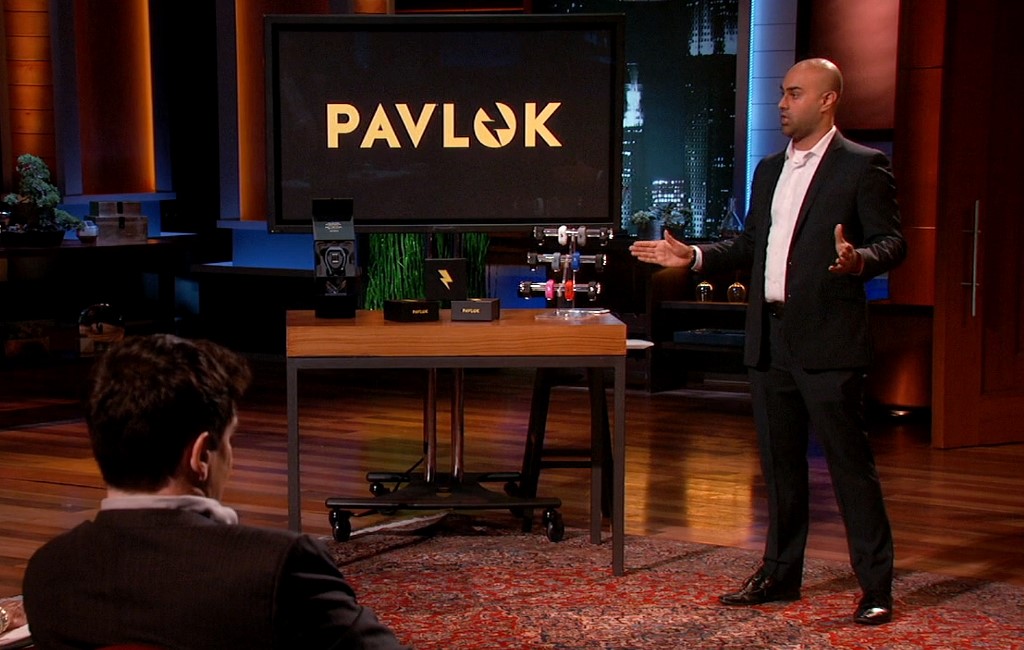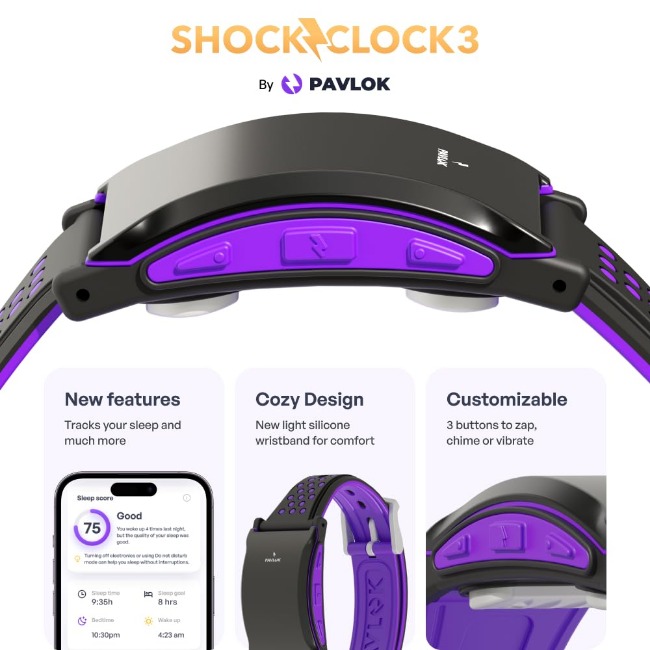Pavlok – Electric Shock Bracelet

NO DEAL
EPISODE SUMMARY
🕓 Air Date: May 20, 2016
Asking For:
$500,000 for 3.14%
Investor:
No Deal
Deal:
No Deal
PRODUCT SUMMARY
Pavlok is the first wearable that not only tracks habits but actively helps break them by delivering a mild electric sensation.
WATCH HERE
IN A RUSH?
Click these to jump to the section you want to read.
Background Story
Maneesh Sethi, the founder of Pavlok, hails from Boston, Massachusetts. His journey began with personal struggles due to severe ADD, making it difficult for him to stay focused and committed. Seeking a solution, he hired someone to physically slap him whenever he got distracted, documenting the experience in a viral blog post. Inspired by this unconventional approach, Sethi came up with the idea of creating a wearable device that would deliver a mild electric sensation to break bad habits. This concept eventually evolved into Pavlok.

The Product
Pavlok utilizes aversive conditioning, a scientific method that involves associating an uncomfortable stimulus with an undesired habit. The wearable device tracks behaviors users want to reduce, alerting them when detected. Users can then press a button on Pavlok to release a mild electric sensation, helping reduce cravings and break bad habits.
The device has applications beyond habit-breaking, including an alarm clock feature that wakes users up with a jolt of adrenaline. The technology is based on the Pavlovian principle, where a stimulus is associated with a specific behavior, influencing the brain’s response.
Pavlok is designed to be versatile, with users customizing it to target various habits like nail-biting, oversleeping, or unhealthy eating. The product claims to have a success rate, with over 50% of users breaking their habits in seven days or less.
The device is priced at $200, and Pavlok has started shipping after generating $800,000 in pre-order revenue. The company emphasizes user engagement and experience, incorporating features like a remote-control app and automation. Pavlok aims to help people take control of their behavior and build healthier habits.

How It Went
The company’s position before Shark Tank
Pavlok’s current position involves pre-orders totaling $800,000, with 3/4 of users in the pre-order stage and 1/4 using prototypes. The device targets users with habits like sitting too long, waking up late, nail-biting, and unhealthy eating. Pavlok’s strategy involves building multiple integrations, such as the unique alarm clock feature that wakes users up with a stimulating pulse. In terms of funding, the company was seeking $500,000 for 3.14% equity on Pi Day. Pavlok’s sales figures are based on pre-orders, and the product recently began shipping.

The company’s valuation, however, was a point of contention, with a $16 million valuation considered too high by the Sharks. Pavlok is structured to engage users actively, relying on their commitment to breaking habits. The company’s success metrics include users quitting nail-biting in four days and over 50% breaking their habits in seven days or less.
The Negotiations:
The negotiation phase proved challenging for Maneesh Sethi as the Sharks expressed skepticism about the product’s legitimacy and questioned the valuation. Kevin O’Leary made an offer of $500,000 as debt at 3.14% equity with a 24-month term at 7.5% interest. However, the deal structure faced resistance from Maneesh, who expressed reluctance to work with Kevin O’Leary, citing concerns about the potential impact on the company’s mission to change human behavior.

Ultimately, Maneesh chose not to accept Kevin’s offer, and all Sharks, including Lori Greiner and Barbara Corcoran, decided to opt out. Despite the regret expressed by Maneesh for rejecting the deal, he emphasized the company’s focus on a broader mission beyond just monetary gains, signaling a dedication to the larger goal of changing human behavior. The negotiation showcased the challenges faced by Pavlok in convincing the Sharks of the product’s efficacy and the company’s value.








